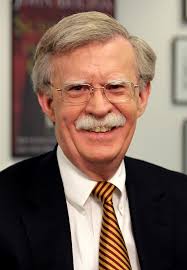
Introduction
John Bolton, a prominent figure in American politics, has recently been in the spotlight due to his extensive career in foreign policy and national security. As a former National Security Adviser under President Donald Trump, Bolton’s perspectives on international relations remain significant, particularly in the context of ongoing global conflicts and tensions. Understanding his role and influence is vital for grasping current political dynamics.
Career Overview
Bolton, who served as the U.S. Ambassador to the United Nations from 2005 to 2006, has had a long-standing reputation for his hawkish views. After his tenure at the UN, he became a key adviser on foreign policy issues, advocating for a tough stance on countries like Iran and North Korea. His advocates praise his commitment to a strong national defence strategy, while critics often highlight his controversial tactics.
Recent Developments
Since leaving the Trump administration in 2019, Bolton has remained vocal, frequently contributing to various media outlets and engaging in public speaking. In a recent interview, he expressed concerns about the United States’ current approach to foreign diplomacy, particularly regarding China and Russia. Bolton argues that the lack of a cohesive strategy could lead to greater instability worldwide.
In 2023, as tensions escalate particularly with global threats from Russia’s war in Ukraine and China’s growing influence in the South China Sea, Bolton’s analyses have gained renewed attention. He has been advocating for stronger alliances among Western nations, suggesting that coordinated efforts are essential to counter these challenges effectively.
Impact and Analysis
Bolton’s influence on foreign policy is particularly pronounced among certain Republican circles, where his views often shape discussions on military intervention and international alliances. His hardline stance on Iran has been a focal point of debate, especially in the context of nuclear negotiations. According to various political analysts, Bolton’s approach serves as a litmus test for assessing the hawkishness of other Republican candidates as the 2024 Presidential election approaches.
Conclusion
As the geopolitical landscape continues to evolve, John Bolton’s insights will likely remain relevant to discussions surrounding U.S. foreign policy. His experience and outspoken nature will influence both public opinion and political debates for the foreseeable future. Understanding Bolton’s position helps clarify the challenges that lie ahead for policymakers in navigating complex international relations. For readers interested in the future of America’s global strategy, keeping an eye on Bolton’s commentary could provide valuable insights.
You may also like

The Significance of the West in Today’s World

Understanding the Current Political Landscape in the UK

The UKIP Party: Recent Developments and Future Outlook
SEARCH
LAST NEWS
- Remembering Wendy Richard: The Promise to Co-Star Natalie Cassidy
- How Did Anglian Water Achieve an ‘Essentials’ Rating for Mental Health Accessibility?
- Shai Hope Leads West Indies in T20 World Cup Clash Against South Africa
- What We Know About Weston McKennie: Future at Juventus and Past at Leeds
- What We Know About the Upcoming Live Nation Antitrust Trial